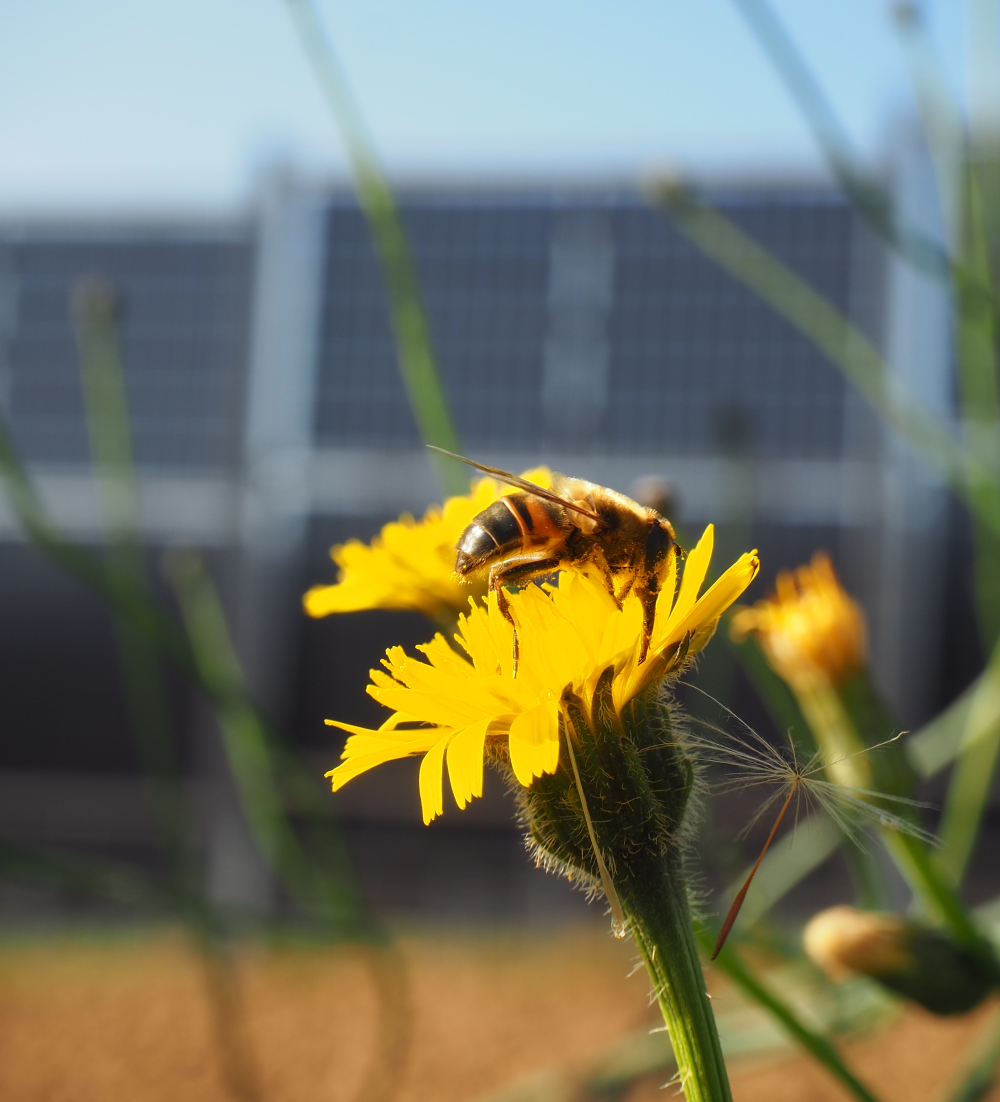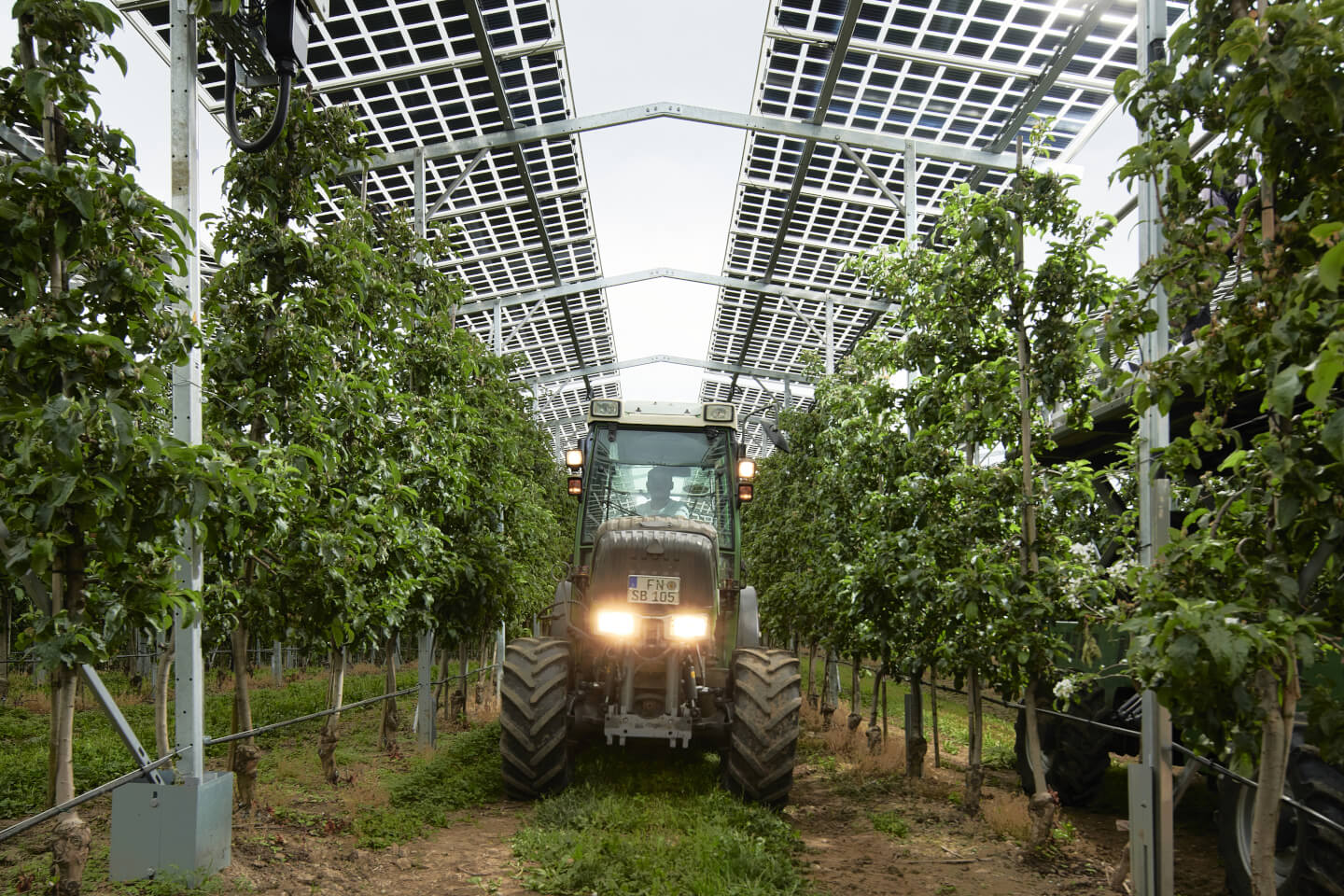In the AgriBioDiv-PV project, we are investigating and evaluating the biodiversity of agri-PV systems. Our research contributes to the development of solid, science-based guidelines for the nature-friendly and landscape-integrated expansion of agri-PV systems. The aim is to assess the impact of agri-PV on nature and the landscape and to enhance the ecological value of agricultural land. The results provide information on crop cultivation, management methods, and ecological measures for agri-PV that are optimised from a nature conservation perspective.
Investigation and Assessment of Biodiversity in Agri-PV Systems
AgriBioDiv-PV
Initial Situation
The expansion of solar energy production is resulting in increasing competition for land use. Agri-photovoltaics offers a solution by enabling agricultural land to be used for both electricity generation and agricultural production. The potential protective functions for crops, resulting, for example, from the shading provided by the modules, are already being extensively researched—but the effects of agri-PV on nature and the landscape have hardly been studied at all.
Advancing climate change is leading to ecological limits being exceeded, thereby also contributing to the loss of biodiversity. It is therefore essential to investigate the effects of agri-PV on biodiversity.
Objective
The AgriBioDiv-PV research project aims to comprehensively investigate and evaluate the effects of agri-PV systems on the environment, in particular on flora, fauna, and the landscape. Based on these findings, practical recommendations for selecting suitable locations, crops, and management methods will be formulated. In addition, proposals will be developed for mitigation measures to minimise the impact of agri-PV systems on agricultural land and the surrounding area, as well as for ecological enhancement measures. The impact of these measures on the economic viability of agri-PV systems will also be investigated.
The guidelines developed will support farmers and planners in designing and implementing their agri-PV projects in a regenerative manner.
The TU Dresden, coordinator of the project, and the Prof. Hellriegel Institut e.V. have proven expertise in the field of agricultural ecology. Bosch & Partner has many years of planning experience in practical PV projects. Fraunhofer ISE is contributing its extensive agri-PV expertise.
Die erarbeiteten Leitlinien sollen Landwirte und Landwirtinnen und Planende dabei unterstützen, ihre Agri-PV-Projekte regenerativ zu gestalten und umzusetzen.
Die TU Dresden, Koordinatorin des Projekts, und das Prof. Hellriegel Institut e.V. verfügen über ausgewiesene Expertise im Bereich der Agrar-Ökologie. Bosch & Partner haben langjährige Planungserfahrung in praxisbezogenen PV-Projekten. Das Fraunhofer ISE bringt seine umfangreiche Agri-PV Expertise ein.

Approach
The research project focuses on analysing and evaluating the impact of agri-PV systems on nature and the landscape based on six case studies. To this end, six different agri-PV systems in Germany will be studied over a period of three years with regard to various species groups, such as avifauna, butterflies, wild bees, grasshoppers, ground beetles, vegetation, small and medium-sized mammals. Microclimatic changes will also be investigated, as these are particularly important for the development of vegetation.
nicht entfernen!!
